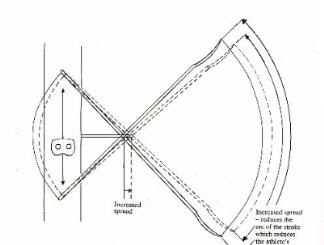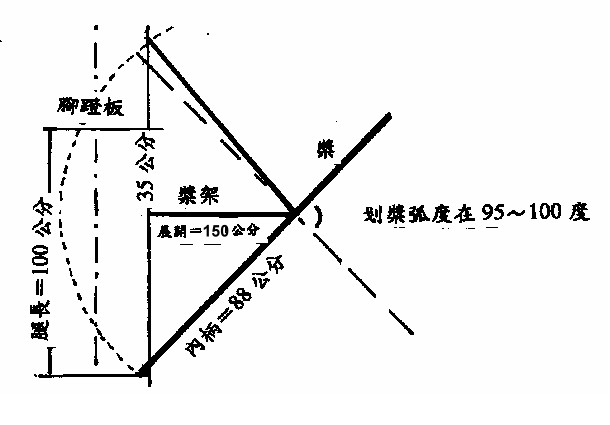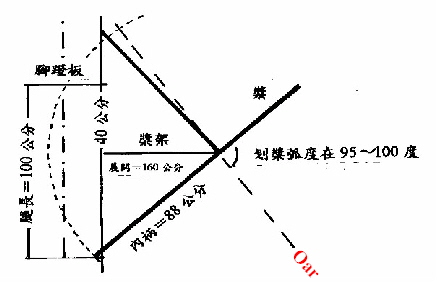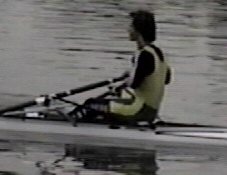
Rowing - Specific Scripts / Rigging and Equipment
Boat-Categories / FAQs + Frequently Given Wrong Answers / Rigging of Boats / Recommended Measurements 
Frequently Asked Question – Frequently Given Wrong Answer
常問的問題及常給的錯誤答案
Does increased spread reduce the arc of the stroke, which is reducing the athlete’s workload?
Fig. A: ( as seen in Rudern + Redgrave’s Complete Book of Rowing )
 Irritating + Wrong!!
Irritating + Wrong!!
This opinion is empirically wrong.
None of this scripts and pictures include the fact, that increasing the spread at your rigger, without caring about biomechanical rules, also include the new adjustment of the foot-stretcher to the stern of the boat.
To forget to adjust the foot - stretcher according the Thumb-Waistcoat-Pocket-Probe, results in an increased distance between grip(s)/hand(s) and body, which automatically leads to an ineffective arm-stroke at the finish.
Fact is, that increasing the spread with included adjustment of the foot-stretcher leads to an increased wide catch ( longer stroke in front of the oarlock ), because it requires the tangential draw at the grip.
The following page shows with two examples ( 150cm and 160cm span ) very clear, that a wider spread will not lead to a shorter stroke, but it can result in a more efficient stroke in front of the oarlock.
We can find the same effect in sculling and sweeping:
Fig. B: Spread ( 150 cm ) with adjustment of the foot-stretcher according the waistcoat-pocket-probe
Legsize= 100cm / Distance Footstretcher - Oarlock= 35cm / Inboard= 88cm / Arc of the Stroke= 950-1000

Fig. C: Increased spread ( 160cm ) with adjustment of the foot-stretcher as in Fig. B
Legsize= 100cm / Distance Footstretcher - Oarlock= 40cm / Inboard= 88cm / Arc of the Stroke= 950-1000

Pic. : Thumb-Waistcoat-Pocket-Probe


Joern Grosskopf / 1999